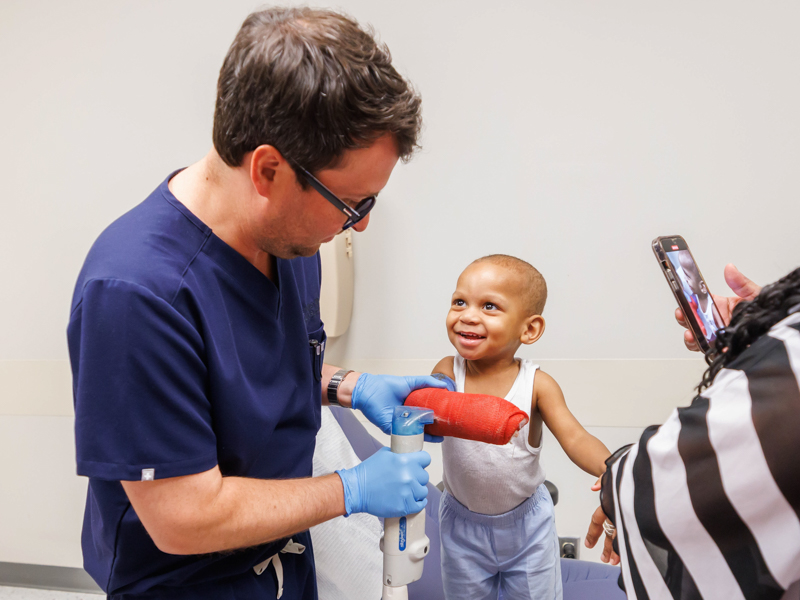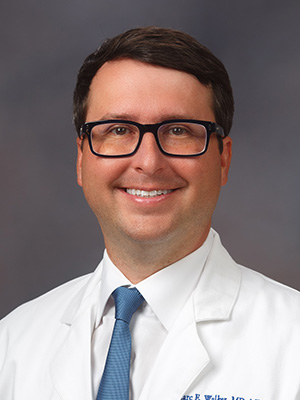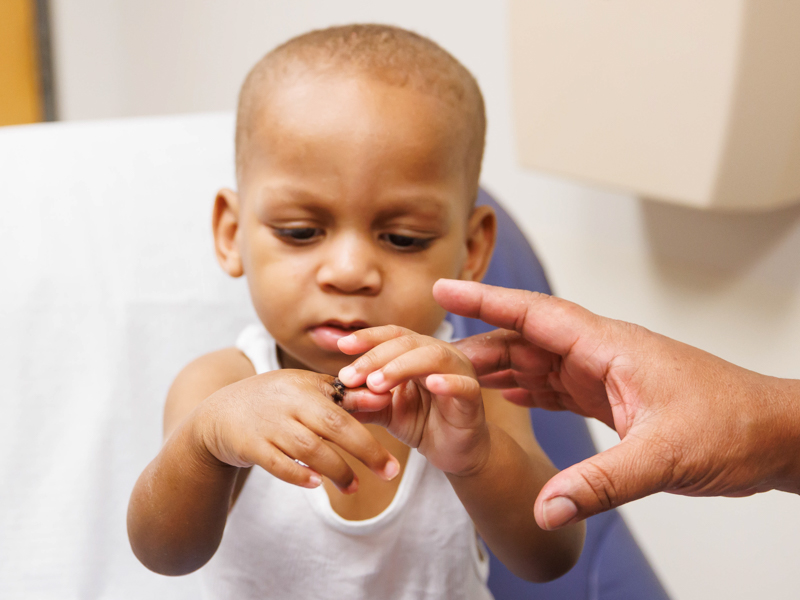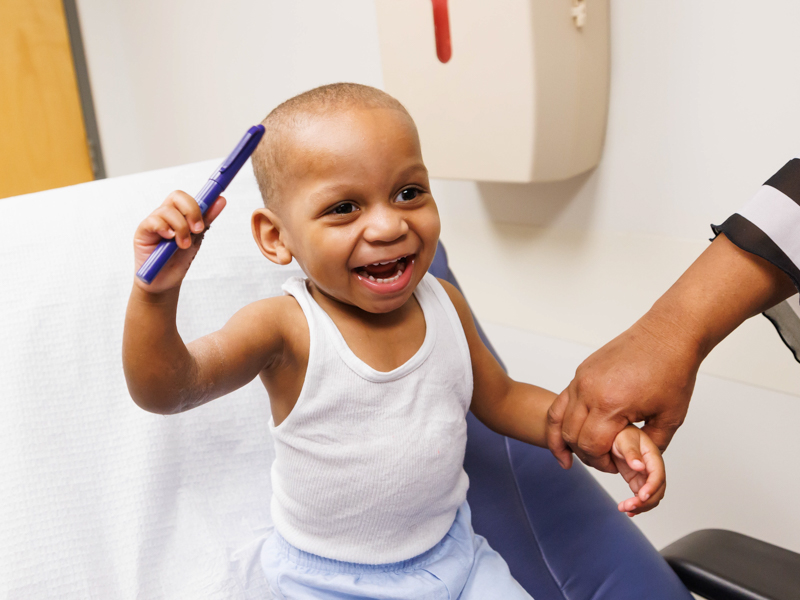UMMC Jabaley-Songcharoen Hand Center gives child a thumb

Kobe Abron grasps a Spider-Man figurine with his right hand, holding it firmly between his newly created thumb and fingers as his grandmother cheers – a normal function for most toddlers but elusive for Kobe until recently.
The 2-year-old has a right thumb thanks to surgery and care from Dr. Marc E. Walker, the board-certified hand surgeon and plastic surgeon leading the Jabaley-Songcharoen Center for Hand, Upper Extremity and Nerve Surgery at the University of Mississippi Medical Center.
Born without a thumb on his right hand, a condition called thumb aplasia, Kobe was referred to Walker by his pediatrician after he learned of the center’s pediatric congenital hand clinic at Children's of Mississippi.
Though a thumb is a small appendage, not having one makes a big difference in ability.

“The thumb accounts for 40% of hand function, according to the American Medical Association Impairment Guide, so the absence of a thumb is quite devastating for physical ability,” Walker said.
Kobe first visited the center as a 5-month-old, said his grandmother, Stacey Hughes of Jackson. “As the months progressed, and after we discussed it as a family, we decided Kobe should have the operation.”
Walker, the Songcharoen Endowed Chair of Plastic and Reconstructive Hand Surgery, associate professor of plastic surgery and orthopaedic surgery, and founding director of the Jabaley-Songcharoen Hand Center, performed a complex hand reconstruction procedure called index pollicization, that converted Kobe’s native index finger into a functional thumb.

“The procedure itself, piece by piece, consists of about eight to 10 different sub-procedures that ultimately result in a repurposed index finger that acts and looks like a thumb, allowing for improved grip, grasp, pinch and opposition,” he said.
Kobe’s visits to the hand surgery clinic are a joy for Walker and the center’s team.
“Kobe is the sweetest and most joyful young man,” Walker said. “From our first encounter, he greeted me with an enthusiastic ‘Hi!', which is a markedly different greeting from most children at the doctor's office. I've never seen a child so happy with the cast saw, but the moment we removed his cast and he saw his hand, his exclamation of ‘A thumb!’ was so fulfilling in every way. We are very happy for Kobe.”
Hughes said Kobe’s medical journey has been smooth. “Everything has flowed easily and has been cohesive. There was no time when we couldn’t communicate with the center and Dr. Walker. He’s an excellent doctor, and every step along the way was well explained.”
After the four-hour surgery, Kobe wore a red superhero cast for about three weeks and then a splint for a month. He’s now strengthening his right hand with physical therapy.

“At his age, the plasticity of his brain is such that he should be able to learn how to use the index finger as a thumb with significant improvement in overall hand function,” Walker said. “Before, he was unable to grasp a crayon or a ball. It’s a whole new exciting world out there for Kobe now.”
Surgeries such as Kobe’s are possible thanks to the Jabaley-Songcharoen Center for Hand, Upper Extremity and Nerve Surgery, which was created through a $5 million gift to UMMC from Drs. Suthin and Somprasong Songcharoen.
“The founding of the Jabaley-Songcharoen Hand Center has allowed us to expand our ability to reach children whose parents may otherwise never have known that advanced hand reconstruction was available to them in Mississippi,” Walker said. “Through continued outreach, educational activities and marketing for both patients and providers in the community, we hope to continue to deliver the highest level of care to Mississippi children and those around the country and beyond.”


